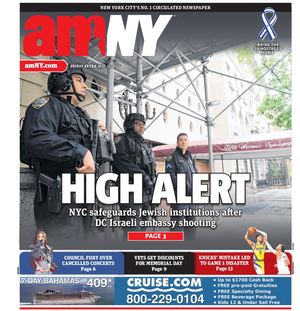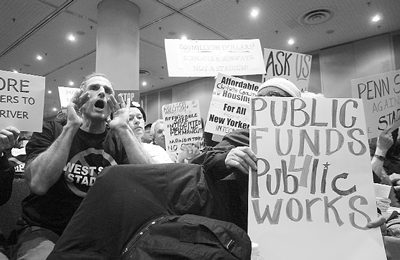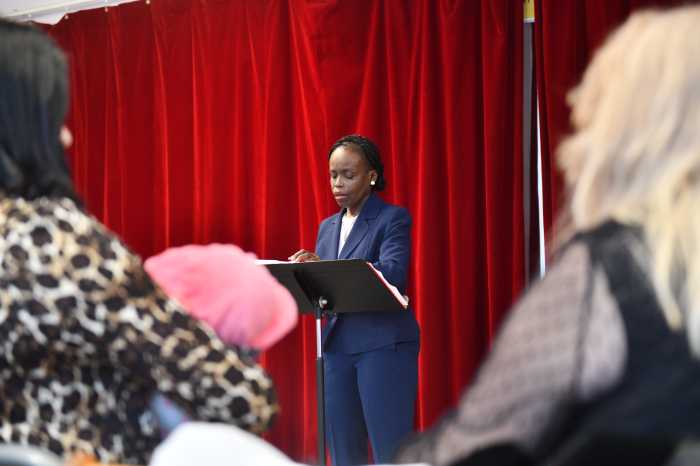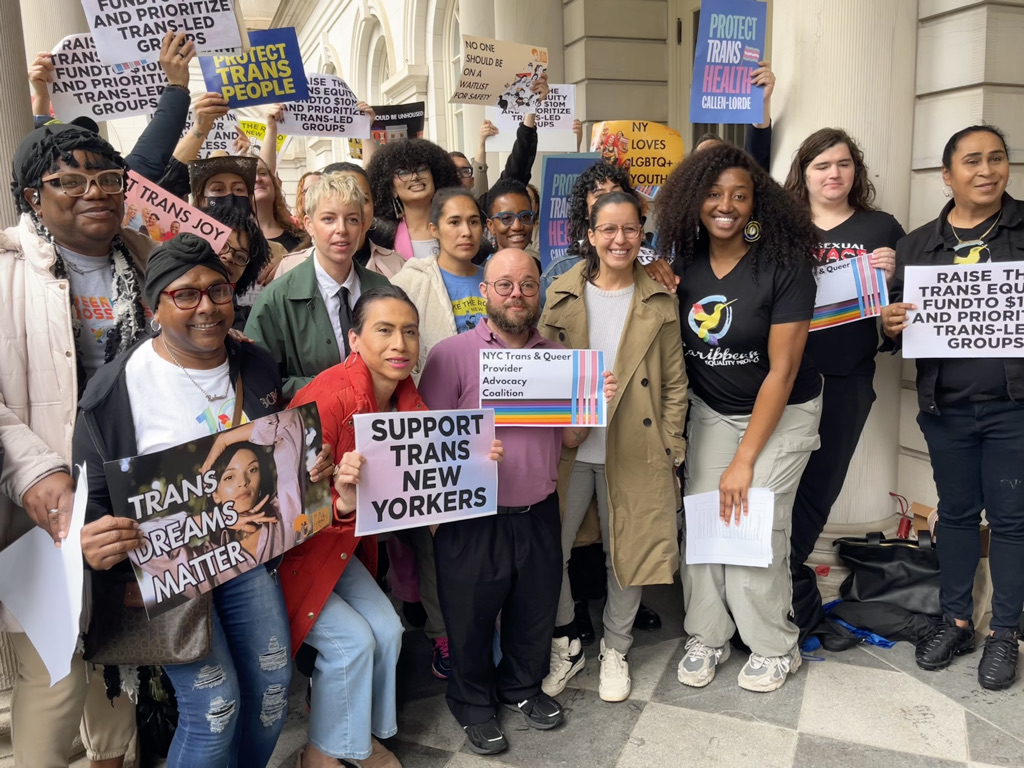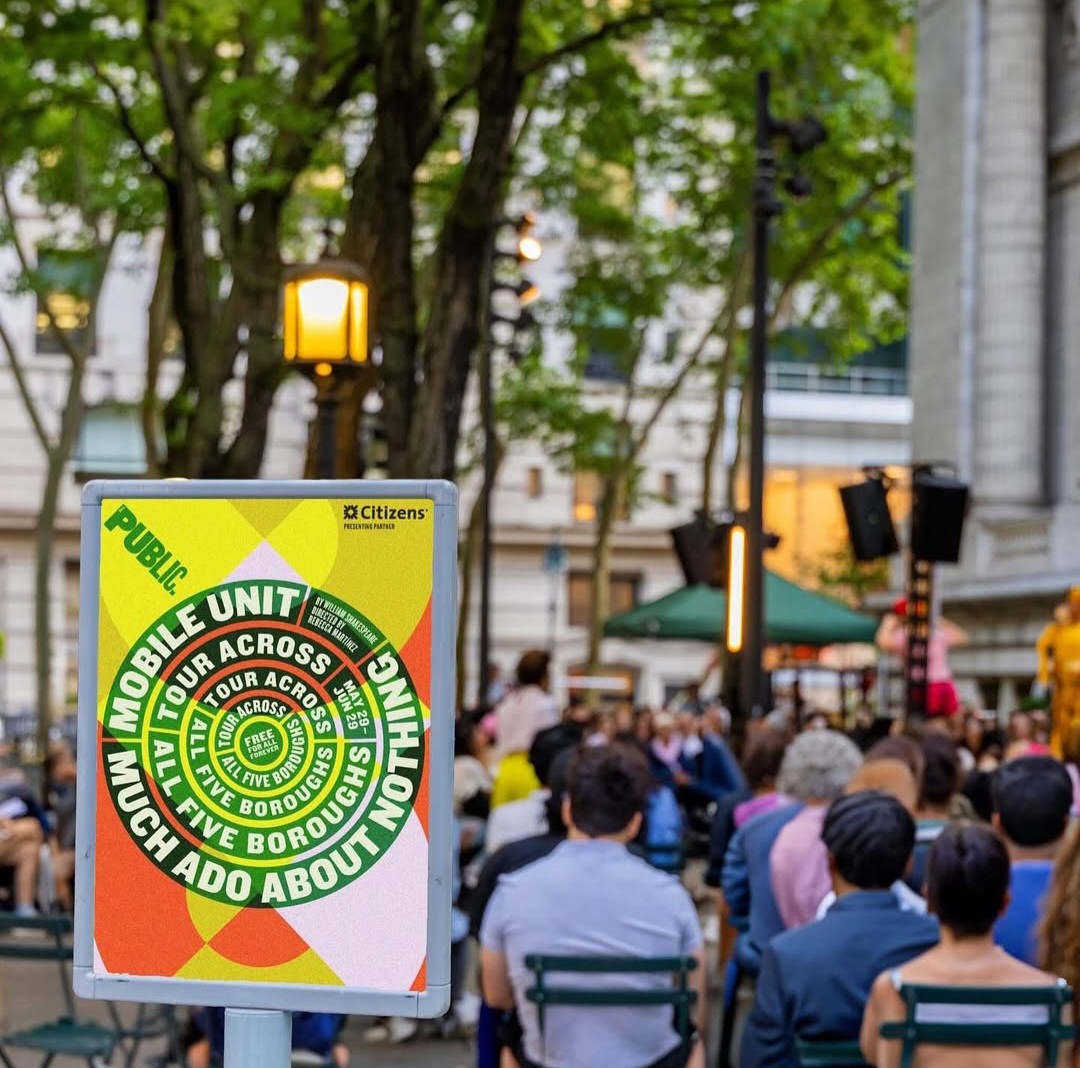By Albert Amateau
More than 1,000 people filled an auditorium at the Javits Convention Center last week to denounce and to cheer the proposed 75,000-seat New York Sports and Convention Center stadium.
West Side activists opposed to the proposed home of the New York Jets football team and venue for the hoped-for 2012 Olympics were so loud that Charles Gargano, head of the Empire State Development Corporation, had a hard time finishing his introductory remarks at the Dec. 16 hearing.
“We see the New York Sports and Convention Center as a sound economic investment for the state and the city,” Gargano said, arousing boos and hoots from opponents who shouted, “No public money.” They referred to the state and city’s intention to contribute $300 million each to build a platform and a retractable roof for the stadium over the rail yards between 12th and 11th Aves from 30th to 33rd Sts.
Nearly as loud were construction union members who attended the hearing clad in yellow T-shirts and cheered in favor of the stadium with the chant, “Build it now.”
But local elected officials and West Side community groups testified against the stadium, which would be built over the Metropolitan Transportation Authority rail yards. Assemblymembers Deborah Glick and Richard Gottfried, State Senator Tom, Duane and City Councilmember Christine Quinn charged that traffic impacts of the stadium would overwhelm the neighborhood.
“The West Side stadium would be an appalling and inexcusable waste of more than $1 billion in taxpayer money. It would deprive the M.T.A. of potential revenue that it could use to forestall fare increases, improve subway service and make much-needed capital improvements. It would cause nightmarish traffic and environmental impacts on the West Side and on the city as a whole,” said Gottfried in a prepared statement.
Critics contended that $600 million of public money should not be spent on a stadium while the city and state face education and transportation needs. Glick predicted that New York City is likely to loose the bid for the 2012 Olympics and then, “It will be utterly impossible to continue the charade that the stadium is anything but a huge giveaway to an extremely wealthy sports team.”
The Hell’s Kitchen Hudson Yards Alliance, a coalition of West Side groups, also protested the fact that because the stadium is proposed for state property, it is not subject to city environmental reviews. Nevertheless, stadium financing would have to be approved by the state Public Authorities Control Board, whose voting members include Assembly Speaker Sheldon Silver and the head of the Senate Finance Committee, Ronald Stafford, a Republican, and the state budget director, a Pataki appointee. Silver last week said he continued to have reservations about the stadium proposal.
Bob Yaro, president of the Regional Plan Association, a planning and advocacy organization, testified at the Dec. 16 hearing against building the stadium “in a part of the city that should be devoted to high-density, high-value office and residential development.” He referred to an R.P.A. study finding that residential development on the stadium site would provide a far greater return on public investment than the stadium.
The Dec. 16 hearing was the latest public airing of the three interconnected West Side projects — the stadium, the expansion of the Javits Convention Center and the Hudson Yards redevelopment of 59 square blocks from 30th to 43rd Sts.
On Dec. 8, Governor Pataki, with Mayor Bloomberg and Assembly Speaker Silver at his side, signed legislation that authorizes the expansion of the Javits Convention Center — but not the stadium.
In an in interview immediately after the signing at the Convention Center, Silver told The Villager that the legislation specifically prohibits Javits funding from being used for the proposed stadium. “Not in any way, shape or form,” Silver said.
The Convention Center legislation, which calls for doubling the size of the Javits and raising its national rank in size from 18 to third or fourth, was seen as a setback for Mayor Bloomberg who had hoped the legislation could help fund the stadium as a home for the Jets and as a potential venue for the 2012 Olympics.
In his formal remarks at Dec. 8 ceremony, Bloomberg said the stadium, the Javits expansion and the rezoning of the Hudson Yards are the three necessary steps to revitalize the West Side.
Gottfried, who was not at the news conference, said later that Bloomberg, Pataki, Silver and State Senate Majority Leader Joseph Bruno had agreed on the Javits expansion bill only after the mayor realized “that he was not going to get a Javits bill that provided back-door approval to the stadium.”
Gottfried represents the district where the Javits Center is located between 34th and 39th Sts., and was an original sponsor of the legislation that created it in 1980. He, along with Duane and Quinn, has supported the Javits expansion but opposes the stadium.
The Convention Center legislation calls for the city and the state each to commit $350 million for the Convention Center expansion plus a hotel tax that would earn another $500 million for the expansion.
Glick, however, voted against the legislation “largely because it allows the use of tax funds to construct one or more hotels,” she said last week. “It left too many unanswered questions about financing,” she said.
On Dec. 13, a City Council subcommittee held a hearing on the Bloomberg administration’s proposal to rezone the Hudson Yards district on the West Side between 30th and 43rd Sts. from 11th to Eighth Aves. and to extend the No. 7 subway line.
The proposal, which would promote construction of high-rise office buildings with 26 million sq. ft. of commercial space and encourage creation of 14,000 residential units, has been modified by the Bloomberg administration to include 2,600 affordable apartments.
Housing advocates, however, repeated their demands for a city mandate that at least 4,000 apartments be created for moderate- and low-income residents. “Although the plan has taken a step forward on affordable housing, it doesn’t go far enough,” said Councilmember Quinn.
“I still think you can do better,” said Councilmember Margarita Lopez. “Don’t tell me no. I know you can,” Lopez said at the Dec. 13 Council subcommittee hearing in response to testimony by Housing Preservation and Development Commissioner Shaun Donovan.
Harvey Epstein, associate director of Housing Conservation Coordinators, a housing advocacy group in Clinton, and member of Community Board 3, which covers the Lower East Side, testified that the Hudson Yards plan would “put more upward pressure on rents and there is no guarantee that any affordable housing will be created.”
The Hudson Yards plan provides incentive programs that enable developers to build affordable housing but those programs are strictly voluntary.
The City Council has until the first week in January to vote on the latest version of the Hudson Yards plan, which then goes back to City Planning for approval and then to the mayor for final approval by the end of the month.
